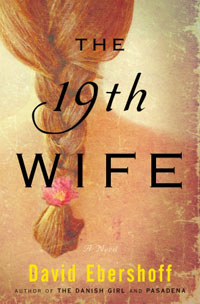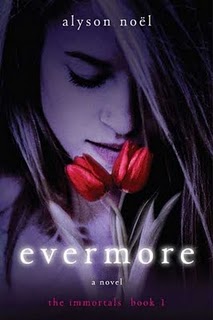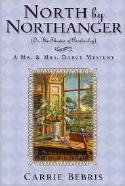This review contains affiliate links, which earn me a small commission when you click and purchase, at no extra cost to you. Thank you for supporting my small business and allowing me to continue providing you a reliable resource for clean book ratings.
When reading historical fiction, there is always an interesting balance between fact and truth and the author’s imagination. Sometimes, it works really well: the historical characters and situations are utilized in creative and effective ways, allowing the reader a peek into otherwise dull history. It’s easy to see where history ends and fiction begins, or, at the very least, the blurring of the line doesn’t matter so much.
At other times, for whatever reason — perspective, belief, personal hangups — the lines between fact and fiction are blurred, and it becomes difficult to tell where one begins and the other ends. The 19th Wife is one of those situations where I, at least, had a hard time discerning between the two.
The novel’s story is both basic and complex: it’s a historical “biography” of a real person, Ann Eliza Young, the 19th polygamous wife of Brigham Young. It’s also a murder mystery: Jordan Scott, who has been kicked out of the Firsts’ polygamous compound in Southern Utah in the 20th century, is drawn back to his home because his mother has been accused of killing his father. The two stories from two time periods and two groups of people are interwoven and intertwined (in more ways than one) as the book unfolds.
It’s an unflinching portrayal of the past of The Church of Jesus Christ of Latter-day Saints, as well as the church’s first two prophets. It also could be read as a commentary on not only modern-day polygamy and the abuse of women that it can foster, but also of the early LDS Church’s appearances. Ebershoff masterfully uses the historical sections to comment on the nature of polygamy and the abuse — especially of children — that occurs because of way it is practiced today in fundamentalist groups. Unfortunately, because of the blurring between fact and fiction, I found myself wondering more about Ebershoff’s motivations in writing the book than about the plot or characters.
I know the job of a novel is to blur the lines between fact and fiction. But, while reading this, I also thought of the myriad reactions to The Da Vinci Code when it first came out; a friend of mine told me to read it because it was brilliant, because she’d never been told the truth before. I wondered if this book — for both members of the LDS Church and those who aren’t — might serve the same purpose. It’s not that we shouldn’t question, or even reimagine, history, or that Ebershoff doesn’t have a right to reimagine, but that it’s a fiction book, a story being told, and I wonder if people will take it as “truth.”
Which brings me to what I felt was the crux of the novel. It’s a “letter” from Ann Eliza’s son, Lorenzo Dee, to a fictional scholar, circa 1939:
“Even so, history has one flaw. It is a subjective art, no less so than poetry or music. The true historian has two sources: the written record and the witness’s testimony. This is as it should be. Yet one is memory and the other is written, quite often, from memory. There is nothing to be done about this defect except acknowledge it for what it is. Yet this is your field’s Achilles’ heel. You say in your letter the historian writes truth. Forgive me, I must disagree. The historian writes a truth. The memoirist writes a truth. The novelist writes a truth. And so on. My mother, we both know, wrote a truth in The 19th Wife — a truth that corresponded to her memory and desires. It is not the truth, certainly not. But a truth, yes.”
Which is definitely something to consider when reading this novel.
Rated: High, for a few dozen instances of strong profanity, as many uses of moderate and mild language, some violence and blood, and references to sex.
Click here to purchase your copy of The 19th Wife on Amazon.




